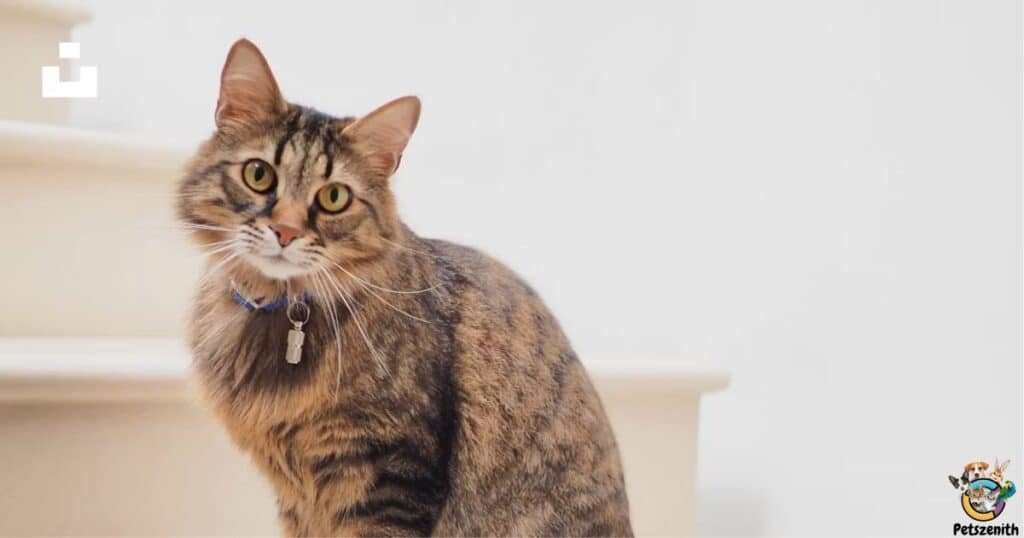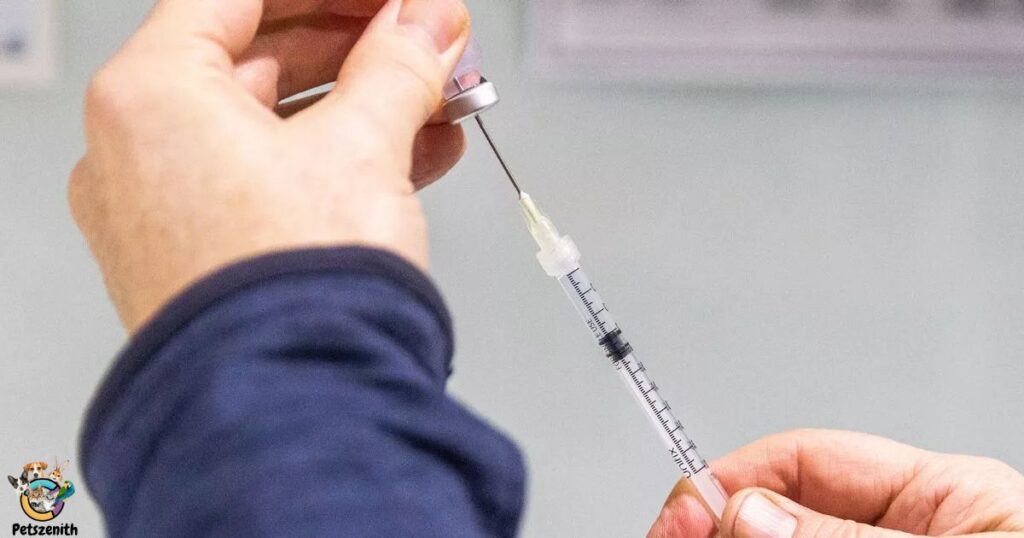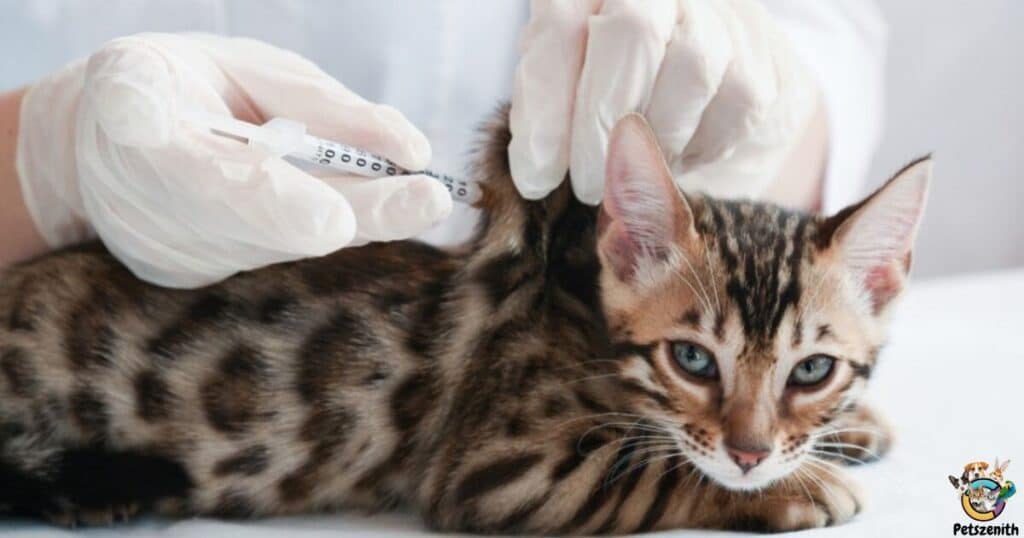When considering boarding a cat, ensuring their health and safety is paramount. Vaccination requirements are often enforced by boarding facilities to prevent the spread of diseases. Understanding which vaccines are necessary for boarding cats is crucial for any cat owner.
Ensuring your cat’s vaccinations are up-to-date is crucial for their health and safety while staying in a boarding facility. The essential vaccines required to provide your beloved pet with a safe and comfortable boarding experience.
What to Know About Cat Vaccinations?
Understanding cat vaccinations is crucial for pet owners. Vaccines help protect cats from serious illnesses and diseases. They work by stimulating the immune system to produce antibodies against specific viruses. Core vaccines, like those for rabies and feline distemper, are essential for all cats.
Additionally, vaccination schedules may vary based on factors like age, lifestyle, and health status. Consulting with a veterinarian is the best way to ensure your cat receives the appropriate vaccinations at the right time.
When Should I Get My Cat Vaccinated?
Timing is crucial when it comes to vaccinating your cat. Kittens should receive their first vaccinations at around 8 weeks of age, with booster shots administered every 3-4 weeks until they are about 16 weeks old. Adult cats should be vaccinated annually to maintain immunity against common diseases. It’s essential to consult with your veterinarian to develop a vaccination schedule tailored to your cat’s specific needs and lifestyle factors.
Do Cats Need to Be Vaccinated Before Going to a Cattery?
Before taking your cat to a cattery, it’s crucial to ensure they are up-to-date on their vaccinations. Vaccinations help protect your cat from contagious diseases and ensure the health and safety of all cats in the cattery. Most catteries have strict vaccination requirements to prevent the spread of illness.
Therefore, it’s essential to check with the cattery beforehand to confirm their vaccination policies. By vaccinating your cat before boarding, you’re not only keeping them safe but also contributing to a healthy environment for all feline guests at the cattery.
What Vaccines Are Required for Cats to Stay at Catteries?

When planning for your cat’s stay at a cattery, it’s crucial to ensure they are up-to-date on certain vaccinations to safeguard their health. The core vaccines typically required for cattery stays include:
Rabies Vaccine: Protects against the deadly rabies virus, which can be transmitted through bites from infected animals.
FVRCP Vaccine: This vaccine guards against several common feline diseases, including feline viral rhinotracheitis, calicivirus, and panleukopenia also known as feline distemper. These viruses can spread quickly in multi-cat environments like catteries, so vaccination is essential to prevent outbreaks.
Vaccines Your Cat Must Have Before Going to a Cattery
Before entrusting your beloved cat to a cattery, it’s essential to ensure they receive the necessary vaccinations. These vaccinations play a crucial role in safeguarding your cat’s health and well-being, as well as preventing the spread of contagious diseases within communal environments like catteries.
Among the essential vaccines that your cat should have before going to a cattery are the FVRCP vaccine and the FeLV vaccine. The FVRCP vaccine protects against three common and potentially serious feline diseases: feline viral rhinotracheitis (FVR), calicivirus (C), and panleukopenia (P). These diseases can spread quickly in environments where cats are housed together, making vaccination crucial for your cat’s protection.
Additionally, the FeLV vaccine is recommended, especially for cats with outdoor access or those who may come into contact with other cats of unknown FeLV status. Feline leukemia virus (FeLV) weakens the immune system and can lead to serious health issues, including anemia, lymphoma, and other cancers. Vaccination against FeLV helps reduce the risk of infection and ensures your cat’s overall health and longevity.
Before making arrangements with a cattery, it’s important to inquire about their specific vaccination requirements. Some catteries may have additional vaccine requirements or recommendations based on their facilities and the health of the cats they care for. By ensuring that your cat is up-to-date on all necessary vaccinations, you can provide them with the best possible protection and peace of mind while they’re away from home.
Core Vaccines for Boarding Cats
Rabies Vaccine:
Rabies is a deadly viral disease that affects both animals and humans. Most boarding facilities require cats to be vaccinated against rabies due to legal regulations and safety concerns.
Feline Distemper (Panleukopenia) Vaccine:
The FVRCP vaccine protects against several contagious viral infections, including feline viral rhinotracheitis, calicivirus, and panleukopenia. These viruses are highly contagious and can spread rapidly in boarding environments.
Additional Vaccines for High-Risk Environments

Feline Leukemia Virus (FeLV) Vaccine:
FeLV is a contagious disease that weakens the immune system and can lead to serious health issues, including cancer. Boarding facilities may require vaccination against FeLV, especially for cats with outdoor access.
Feline Calicivirus and Herpesvirus (FVRCP) Vaccine:
Feline calicivirus and herpesvirus are common causes of respiratory infections in cats. Vaccination against these viruses is essential, particularly in multi-cat households or high-density boarding facilities.
Vaccine Administration and Documentation
Vaccine Administration Protocol:
Vaccines should be administered by a licensed veterinarian according to recommended guidelines. Proper dosage and frequency are essential for ensuring the vaccine’s effectiveness.
Documentation Requirements:
Boarding facilities typically require proof of vaccination before accepting a cat for boarding. Owners should keep accurate vaccination records and provide them to the facility as needed.
Exceptions and Medical Exemptions
Medical Exemptions:
In some cases, cats may be exempt from certain vaccinations due to health reasons. However, owners must obtain medical exemption documentation from a veterinarian to ensure compliance with boarding facility policies.
Conditional Boarding:
Boarding facilities may have specific protocols for cats with incomplete vaccination histories or medical exemptions. These protocols aim to minimize the risk of disease transmission while accommodating the needs of individual cats.
Communication with Boarding Facilities

Pre-Boarding Requirements:
Cat owners should communicate with boarding facilities well in advance to understand their vaccination requirements. Providing vaccination records and documentation during the booking process helps facilitate a smooth boarding experience.
Clarifying Policies:
It’s essential for cat owners to inquire about specific vaccination policies and protocols of boarding facilities. Clear communication ensures that both parties are aware of expectations and requirements.
Frequently Asked Questions
Are vaccinations required for indoor cats?
Yes, vaccinations are still essential for indoor cats to protect against contagious diseases and ensure their overall health.
Can cats be boarded without vaccinations?
Most boarding facilities require cats to be vaccinated before accepting them for boarding. However, some facilities may have specific protocols for cats with medical exemptions.
How often do cats need to be vaccinated for rabies?
Rabies vaccination schedules vary depending on local regulations and the type of vaccine used. In general, rabies vaccines are administered annually or every three years.
What should I do if my cat has an adverse reaction to a vaccine?
If your cat experiences an adverse reaction to a vaccine, contact your veterinarian immediately for guidance. They can provide appropriate treatment and advice based on your cat’s specific situation.
Are there any risks associated with vaccinating cats?
Vaccinating cats is generally safe and effective, but there can be risks of adverse reactions in rare cases. It’s essential to discuss any concerns with your veterinarian and follow their recommendations for vaccination.
Conclusion
In conclusion, ensuring that cats are vaccinated before boarding is essential for their health and well-being. By providing the necessary vaccinations, we can protect our feline companions from contagious diseases and create a safer environment for all cats in boarding facilities. Remember, staying up-to-date on vaccinations not only safeguards individual cats but also contributes to the overall health of the cat community.
Ultimately, vaccination requirements for boarding serve to prioritize the health and safety of cats in our care. By adhering to these requirements, we can minimize the risk of disease transmission and ensure a positive boarding experience for both cats and their owners. Thank you for your commitment to keeping our furry friends healthy and happy.

Davin Connor is an experienced author with 3 years in pets writing. Known for concise, informative content, he shares expertise on pet care, behavior, and health through his engaging articles.






